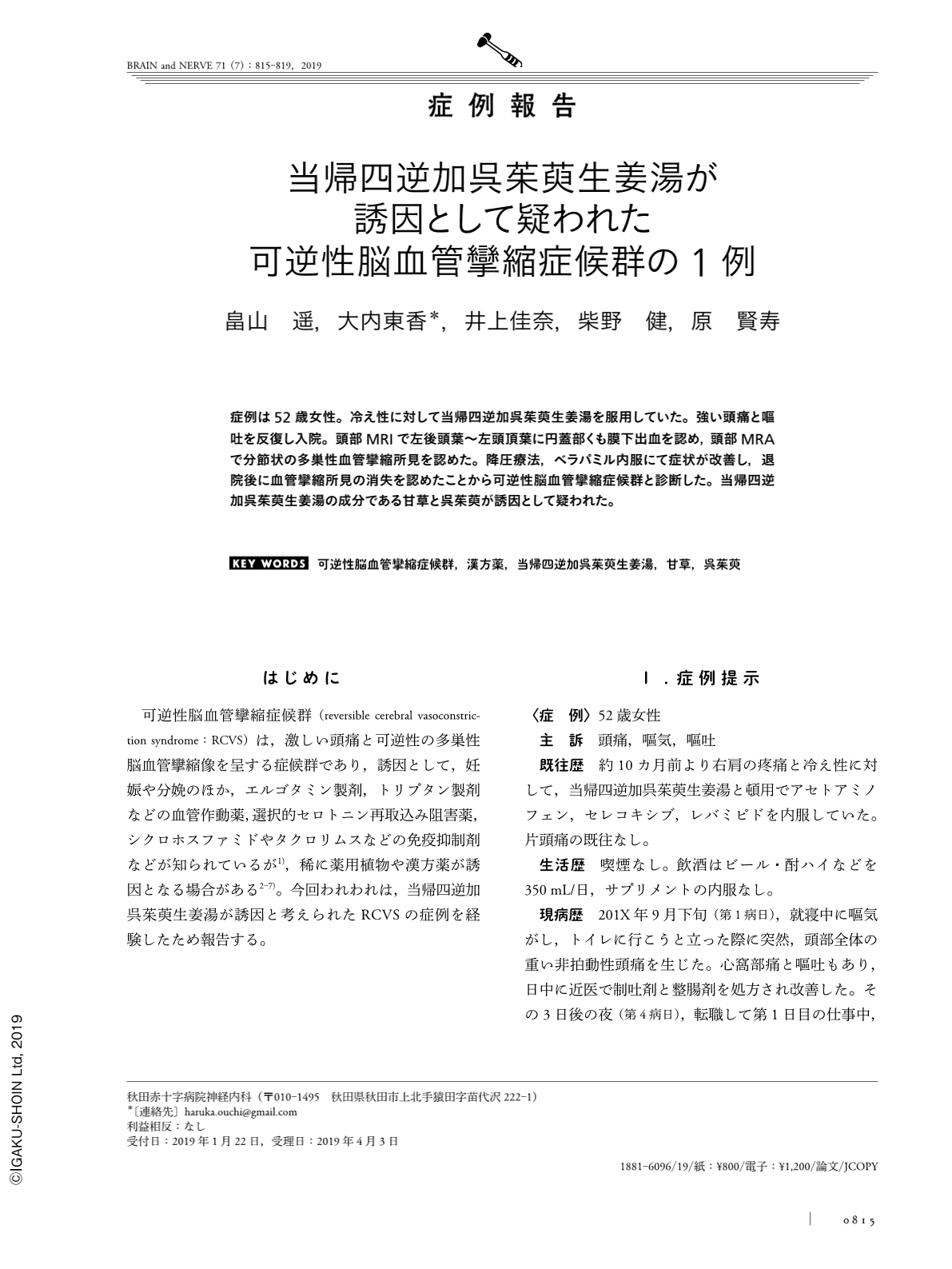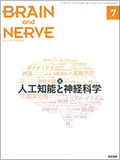Japanese
English
- 有料閲覧
- Abstract 文献概要
- 1ページ目 Look Inside
- 参考文献 Reference
症例は52歳女性。冷え性に対して当帰四逆加呉茱萸生姜湯を服用していた。強い頭痛と嘔吐を反復し入院。頭部MRIで左後頭葉〜左頭頂葉に円蓋部くも膜下出血を認め,頭部MRAで分節状の多巣性血管攣縮所見を認めた。降圧療法,ベラパミル内服にて症状が改善し,退院後に血管攣縮所見の消失を認めたことから可逆性脳血管攣縮症候群と診断した。当帰四逆加呉茱萸生姜湯の成分である甘草と呉茱萸が誘因として疑われた。
Abstract
A 52-year-old woman taking a Chinese herbal medicine for 10 months was admitted to our hospital for recurrent severe headaches, nausea and vomiting. Brain magnetic resonance imaging revealed convexity subarachnoid hemorrhage in the left occipital and parietal lobes. Brain magnetic resonance angiography (MRA) showed multifocal segmental stenosis of cerebral arteries. Clinical symptoms resolved after treatments with nicardipine and verapamil. Follow-up MRA at 31 days after the onset showed complete disappearance of multifocal stenosis of cerebral arteries, confirming the diagnosis of reversible cerebral vasoconstriction syndrome (RCVS). It was suggested that licorice and evodia fruit, which were components of a Chinese herbal medicine named tokishigyakukagoshuyushokyoto were the precipitating factors of vasoconstriction. It is important for physicians to recognize that herbal supplements could be one of the causes of RCVS.
(Received January 22, 2019; Accepted April 3, 2019; Published July 1, 2019)

Copyright © 2019, Igaku-Shoin Ltd. All rights reserved.


